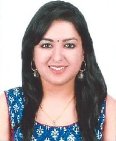MEDICAL PLURALISM IN INDIA AND AYUSH: A REVIEW
Keywords:
Medical pluralism, AYUSH, Folk healing practices, TCAM.Abstract
The Indian medical domain has been described as “an eclectic ‘non-system’ of knowledge and practices deriving from the continuous interplay of indigenous and introduced traditions”. Not withstanding this continuous interplay, since Independence, policymakers and other health system actors have attempted to, and largely succeeded in developing a discrete architecture privileging allopathic medicine over other systems. Most recently, however attempts have been made at combining the strengths of practitioners from Traditional, Complementary and Alternative Medicine (TCAM) systems of medicine under a coherent policy framework popularly known as AYUSH (Ayurveda, Yoga and Naturopathy, Unani, Siddha, Sowa-Rigpa and Homoeopathy), particularly in the movement towards Universal Health Coverage in India. The paper attempts to understand in detail how this political will developed an integrated model of healthcare where the traditional and conventional medicine has evolved into a complimentary structure. The paper presents a detailed review on Indian healthcare system and the existence of medical pluralism tracing its linkages and outcomes in the creation of National AYUSH policy.
Downloads

Downloads
Published
Issue
Section
License

This work is licensed under a Creative Commons Attribution-NonCommercial-ShareAlike 4.0 International License.


